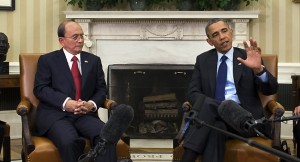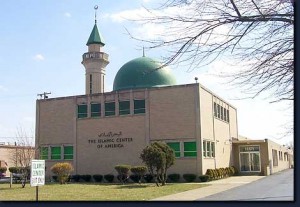Over the last week, the world has been shocked by images of thousands of Rohingya refugees adrift at sea and the apparent refusal of Thailand and Malaysia to grant these people asylum or even provide humanitarian aid. There are striking similarities and contrasts with Europe’s own immigration challenge which was discussed in this space a couple of week ago.
A History Lesson
 I had to give myself a history lesson to figure out what was going on and found that sandwiched in between Bangladesh and Myanmar is a land which was called Arakan in the past and is referred to as Rahkine today. Most of the territory is in Myanmar and it has an ethnically mixed population with about 60% Buddhist and 30% Muslims of different groups the largest of which are referred to as the Rohingya.
I had to give myself a history lesson to figure out what was going on and found that sandwiched in between Bangladesh and Myanmar is a land which was called Arakan in the past and is referred to as Rahkine today. Most of the territory is in Myanmar and it has an ethnically mixed population with about 60% Buddhist and 30% Muslims of different groups the largest of which are referred to as the Rohingya.
According to historian Dr. Jacques P. Leider, the Arakene state thrived in the 15th century and its capital Mrauk-U was a major trading center. Although its kings took muslim titles, Dr. Leider cites a number of alternative versions of the orgin of the region’s muslims. The Arakan Rohingya National Organisation, a group based in London, insists that the Rohingya have been living in Arakan since the 7th century and number two million people in Myanmar and an additional 1.5 million living abroad.
The current situation appears to be the result of the Rohingya not being included in the census or issued identity cards at the time of the foundation of modern Burma (now Myanmar), being systematically persecuted and settled in camps. Myanmar does not recognize the term Rohingya and insists that these people are simply “Bengalis” on the wrong side of the international border.
Rakhine is a complex place in addition to the situation of the Rohingya and has been the focus of international scrutiny. More information can be found in a report of the International Crisis Group, an independent NGO committed to preventing and resolving deadly conflict, based in Brussels.
Desperate People -Real Politics
According to the Guardian, the Rohingya are fleeing to the sea as a last result as they feel have no hope in Rahkine. Modern history is full of people fleeing persecution and poverty by sea and also of governments refusing to take them in. Today, Europe is resisting the flood of refugees from Syria and Africa and in the past a number of countries including the United States turned away ships full of Jewish immigrants fleeing World War II. Thailand and Malaysia have their own problems and are not ready to extend protection to the Rohingya.

Burma is 80% Buddhist and was a province of Brittish India since it was conquered by the Brittish in the 1800s. The country achieved its independence in 1948 and its history is marked by tension between its military, buddhist monks, and representatives of civil society such as Aung San Suu Kyi. Its current president Thein Sein visited Barak Obama last year in Washington who did bring up the plight of the Rohingya in their cordial and business like meeting.
What to do?
The question, on this and on so many other issues, is what should the western governments and companies do with regard to such intractable and tragic problems. As Myanmar opens up to trade and investment, the country offers important opportunities for international firms in energy and natural resources.
Should we do business with the Burmese in light of the fate of the country’s Rohingya minority? On the other hand, should the West mind its own business and consider the problem an internal or perhaps regional affair?
There will be a conference in Oslo later this month to discuss the issue and perhaps it will issue some guidelines on what to do.
 On the issue of Syrian refugees a piece in The New York Times this week suggested settling 50,000 of them in Detroit where there is already a prosperous arab population and where they could potentially add a needed economic boost to the city. Will anybody take in the Rohingya?
On the issue of Syrian refugees a piece in The New York Times this week suggested settling 50,000 of them in Detroit where there is already a prosperous arab population and where they could potentially add a needed economic boost to the city. Will anybody take in the Rohingya?

